
在破与立之间,我和祖辈们走过了一个循环
Jiang Zemin and His Era
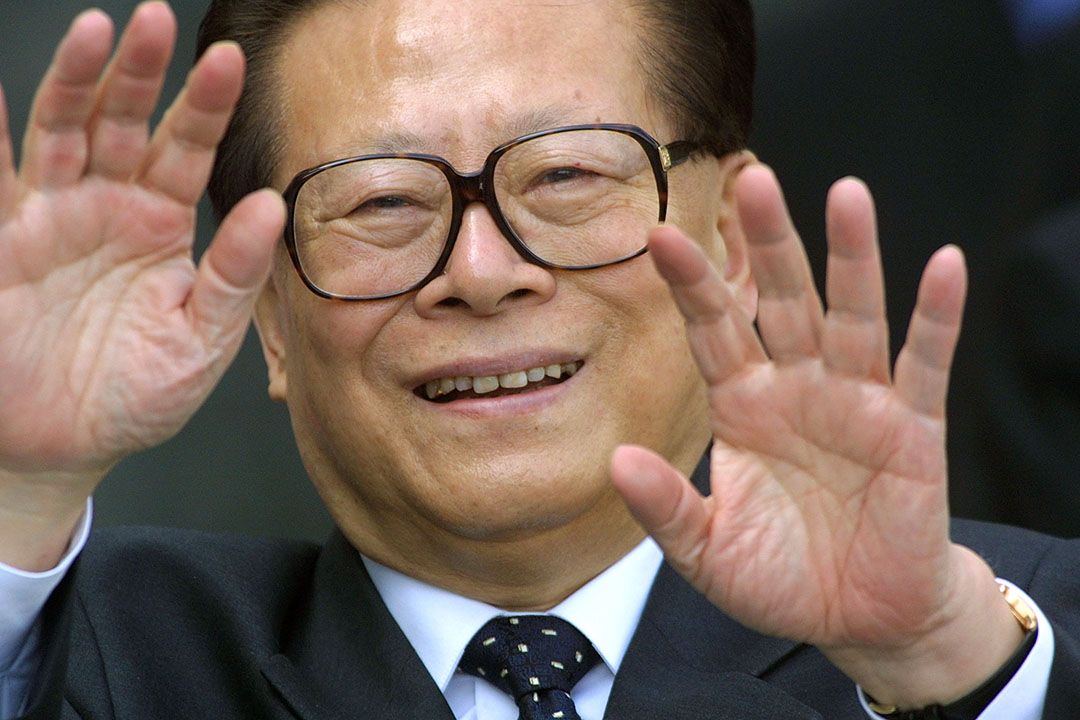
One of the most hotly debated topics recently is the death of elders.
The elder is a kind of ridicule for Jiang Zemin. He has another name, which may come from the image of the pair of black-rimmed glasses, big mouth and high-waisted pants he wears all year round, creating a kind of amused amphibian Moe phase.
Compared with the present, the era of the elderly, whether it is the tolerance of the society, or the economic development at that time, and the reform of the system, all seem to be so prosperous. It is an era of progress and an era of wealth creation. But for the elder himself, there are mixed reviews, and so are his reforms.

Jiang Zemin is versatile
In fact, compared with Hu Jintao's seriousness and Xi Jinping's seriousness, Jiang Zemin is much more humorous and friendly. At the same time, he is probably the most versatile of the other CCP leaders. He speaks five languages and is said to be fluent in German and Japanese. If you add Cantonese and Shanghainese, there should be 8 languages. This allowed him to speak a few words in English from time to time during his foreign visits, and even used English throughout his lectures at Harvard University , and sang a few lines of Peking Opera on different occasions, which made him humorous and easy-going.
Not only that, but he also has a lot of talent in music, he can conduct the band , he can sing Peking opera, whether it is bel canto or popular, he can sing well, and when he sings well, he can also dance ballroom dancing. The other is his calligraphy. In my impression, his inscriptions and signatures appeared in many places at one time.
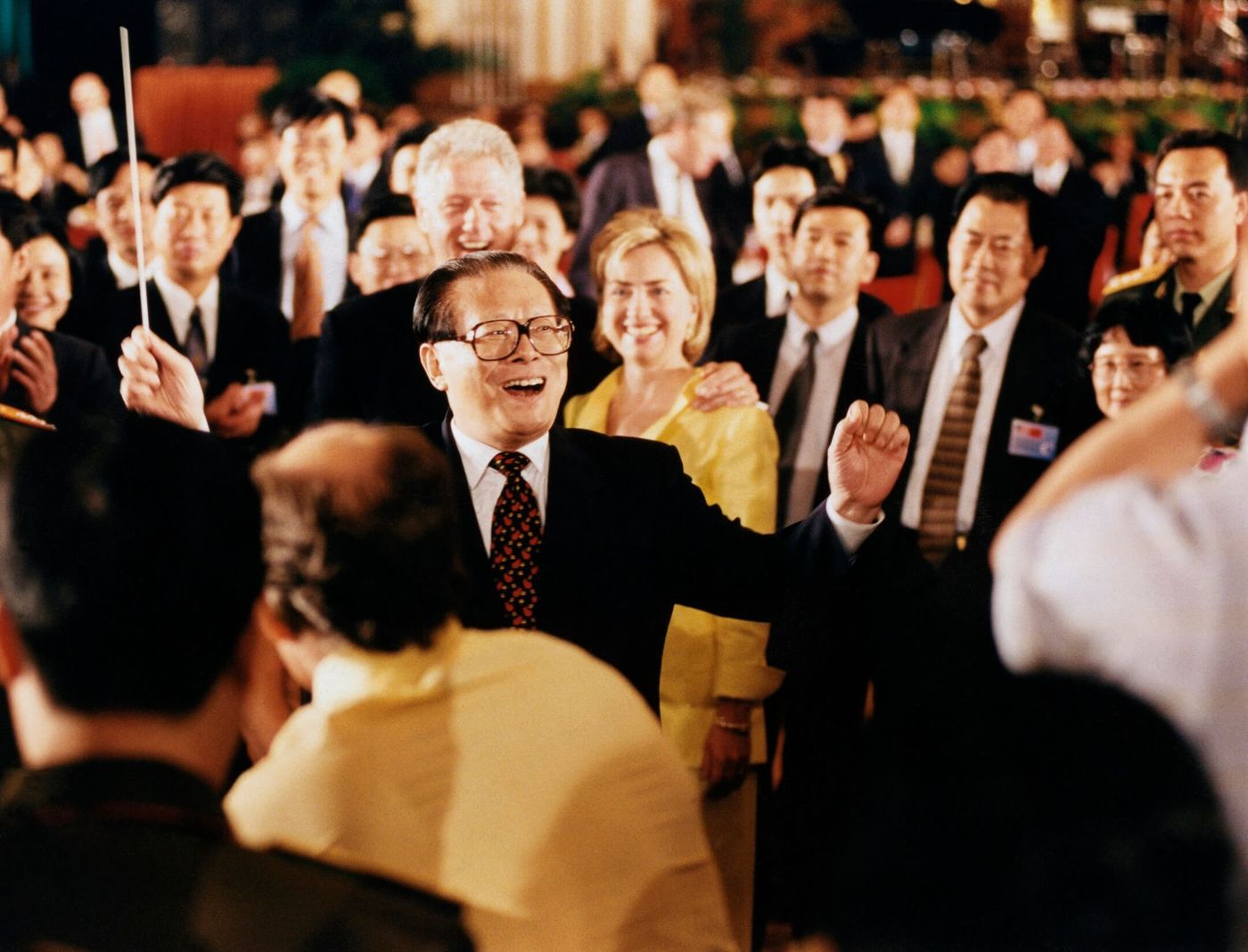
The film clam culture also appeared on the Internet, and clams appeared for a while, and the new clam society used this to ridicule his Internet subculture. From ridicule to nostalgia, it can be said that it is a kind of release for the current high-pressure society. Compared with Xi, Jiang's era is undoubtedly the best decade in China.
Jiang Zemin's Ascension and Reform
Without 1989, there would be no 13 years of Jiang Zemin in the history of the CCP and China. Jiang Man was 63 years old in 1989. In the biography "He Changed China" written by Citibank director and American Kuhn, Jiang Yuan plans to retire from the post of Shanghai Municipal Party Secretary at the age of 65 and go to his alma mater Shanghai Jiaotong University as a professor. Do not follow the traditional path of Chinese politicians seeking positions at the National People's Congress or the CPPCC. But the times changed his fate: shortly after June 4th, he was selected by the elders of the Communist Party of China to be the successor to the deposed Zhao Ziyang.
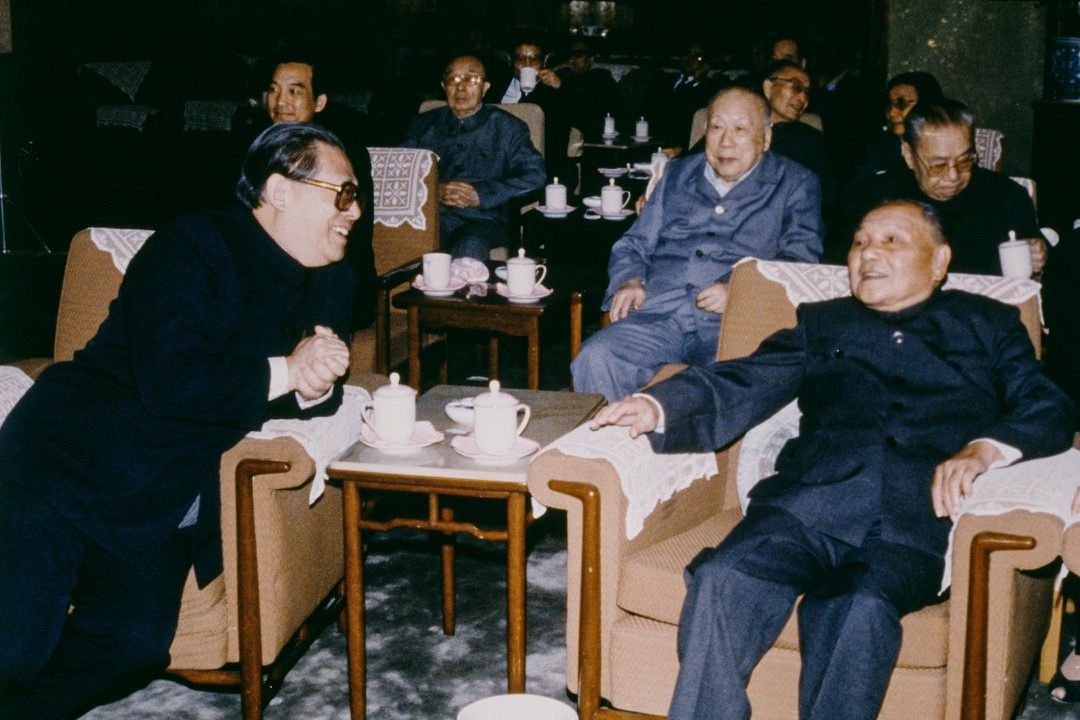
For a person who had no "ambition" and no political affiliation at the top, this was both gratifying and surprising—at that time, the world looked down on him, and he might even think that he was just a transitional leader, a A person in a temporary caretaker position. In Jiang's later words, "I feel like walking on thin ice." It was just this "transition" that allowed him to stay in the highest position of the CCP for 13 years. In addition, after resigning from the post of General Secretary of the CCP, he continued to serve as the chairman of the Military Commission for three years and exercised the "responsibility of supervising the country." Therefore, The actual time in power is as long as 16 years.
Jiang’s experience as chairman can be divided into two stages. In the former stage (1989-1994), he was constrained by Deng Xiaoping and Chen Yun and other veterans of the Communist Party of China, and he was basically an obedient role like a daughter-in-law; in the latter stage (1994-2002), he waited to come The opportunity to make independent decisions, and his changes to the CCP and China, also mainly occurred in the second half.
No matter how people evaluate Jiang Zemin, one thing should be admitted. During the past 10 years in power, he has transformed China from a country "turbulent due to the Tiananmen incident" into a major engine of world economic development and a commercial and cultural center. and open country" (Kuhn). He carried out economic and state-owned enterprise reforms, established a preliminary market economy in China, promoted China's entry into the WTO, and locked the road to opening up for China; The certain development of democracy expands the freedom of society.
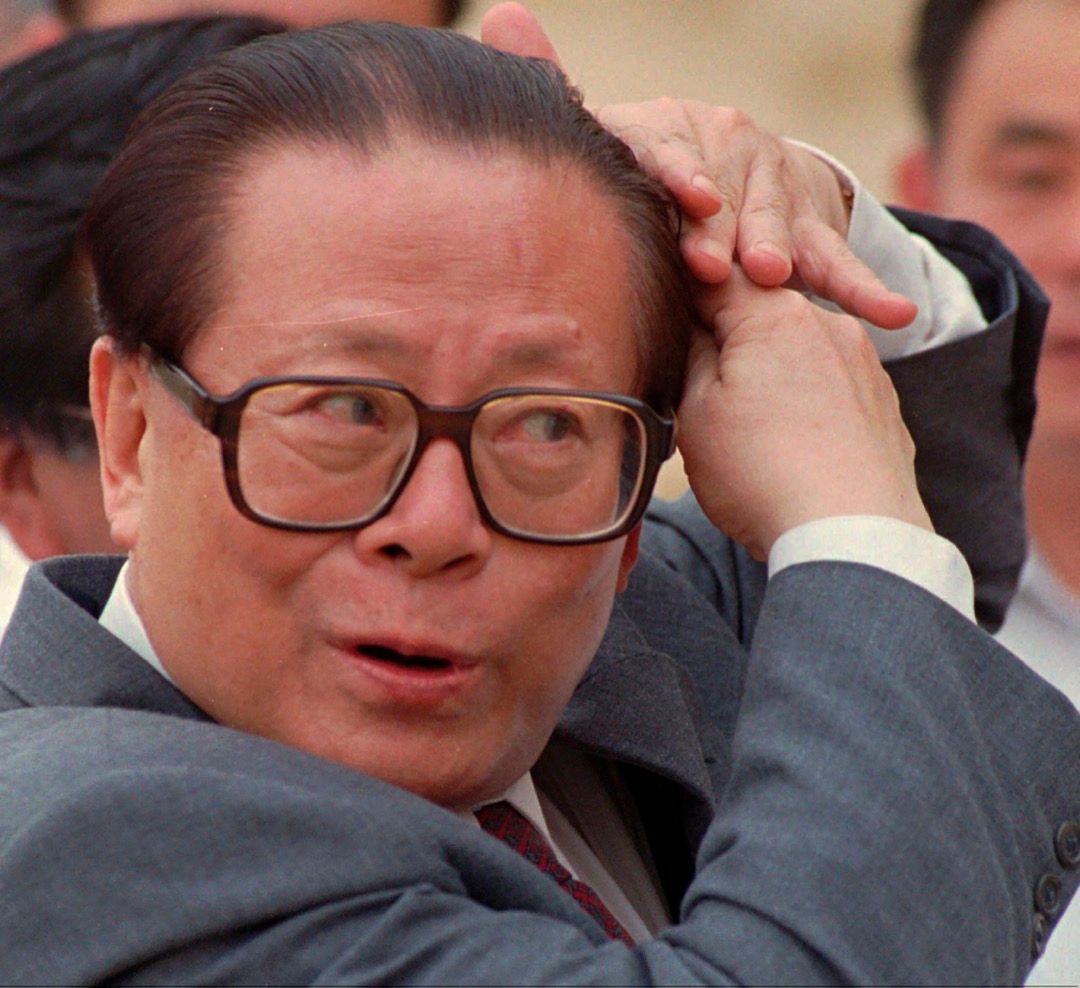
1. Tax-sharing reform: a watershed in tax reform
The most important reform of the economic system in this era is the reform of the tax-sharing system in 1994. Prior to this, the large-scale contract system since the 1980s has been implemented. The so-called big contract system means that in terms of fiscal revenue division, except for the income of enterprises and public institutions directly under the central government and tariff revenue, the rest of the income is regarded as local fiscal revenue; during implementation, local fiscal revenue increases or fiscal expenditures The balance shall be retained for local use.
The large-scale fiscal policy has greatly stimulated the local enthusiasm for economic development, and since the base of the contract was approved according to the data in the early 1980s, the amount of the coastal provinces that rose rapidly after the reform and opening up was relatively low, while the traditional strong Provinces (cities) are relatively high. For example, the amount that Shanghai City turns over to the central government is 12 billion yuan a year, while that of Guangdong Province is 1 billion yuan. The result of this unequal bitterness and happiness has resulted in a chaotic situation where the "princes' economy" is overflowing. Moreover, it also kept the central finance in a deficit for a long time, and was ridiculed as "begging finance".
In view of this, Zhu Rongji, then vice premier of the country in charge of the economy, proposed a reform plan for the tax sharing system: the central government will allocate most of the taxes that are stable in tax sources, broad in the tax base, and easy to collect. Consumption tax and tariffs will be classified as central fixed income. The personal affiliation is assigned to the central and local governments respectively; the value-added tax is divided between the central and local governments according to the ratio of 75:25.
It was difficult for this plan to win the support of the provinces at the beginning. At that time, Zhu Rongji went back and forth to persuade the provinces, and finally agreed that the local government could transfer part of the land transfer income to the local government, which also laid the groundwork for the future "land finance". Foreshadowing.
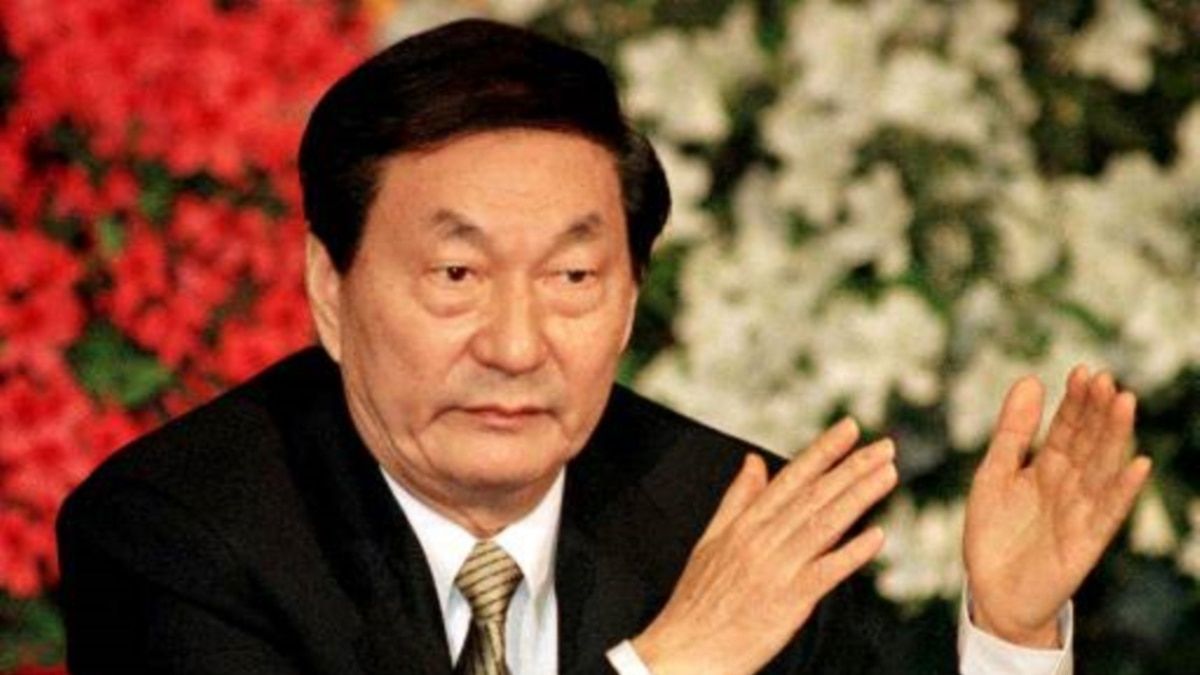
2. State-owned enterprise reform under corruption
A very important reform during that period was the reform of state-owned enterprises, which was also a major market-oriented economic reform.
For a long time, state-owned enterprises have been the "pro-sons" of the country, and they are not allowed to close down or be merged. However, in 1992, the State Council promulgated the "Regulations on the Control of Industrial-level Conversion of Ownership by the Whole People", which gave enterprises 14 operating autonomy. This was also the first time for state-owned enterprises to test the waters in the wave of marketization. But no one expected that by 1995, the "pro-sons" had a loss of more than 40%, and the average corporate debt ratio was as high as 78.9%. Compared with ten years ago, assets increased by 4.1 times, and debts increased. 8.6 times. Zhu Rongji, the then vice-premier in charge of the economy, decided that he could no longer take care of these "sons" and had to give up. So in 1995 he proposed a reform plan for state-owned enterprises, and its central idea was to "grasp the big and let go of the small."
The so-called "grasp the big" means to imitate the Japanese and Korean models of large companies, select some enterprises with market competitiveness, support them in financial and credit policies, and make them grow rapidly through the "industry-financial" mixed operation model.
The so-called small and medium-sized state-owned enterprises that have poor operating performance and are not pillar industries are sold to the private sector in the name of "shutdown and transfer". If no one wants them, they will go bankrupt.
Such reforms, both in the past and in the present, are full of controversy. At that time, the social security system had not yet been established. After all, the employees of the "pro-sons" were all provided by the state-owned enterprises from birth to death, food, drink, and even education and medical care, and they had to be employed for life. It can also be passed on from generation to generation. But the market is so big, and many local officials blindly approve projects and expand production capacity for the sake of political achievements and promotions, causing supply to seriously exceed demand. This led to the insolvency of state-owned enterprises, and the high welfare paid to employees could not be reduced, which invisibly increased the burden on enterprises. State-owned enterprises used to rely on financial appropriations, but in 1983 they changed to loans from banks. Due to poor management, loans continued. Climbing, the ability to repay the debt and interest is poor.
Some business executives got used to grant days with no intention of paying them back at all. This in turn led to a rise in non-performing loans for banks. If things go on like this will lead to economic crisis. On the one hand, there is a loss, on the other hand, there are redundant staff and high benefits. Now that market-oriented operations are required, there is no other way but layoffs, so there is another wave of layoffs.
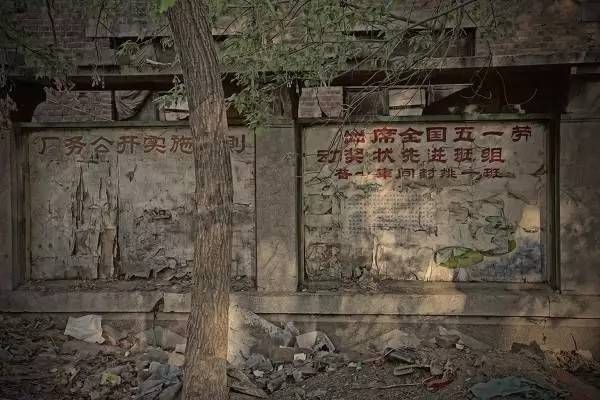
The negative impact of the reform is far more than that. These large number of state-owned enterprises have become cakes for the rich and small, and the reform has actually become a feast for cutting the cakes of state-owned enterprises.
A notable feature of the reforms in the 1990s was the speed at which the reforms advanced, which can be called a hurricane. This was indeed a golden age in the history of reforms.
But the cruelty of the reform and the degree of division of state-owned assets are complementary. In fact, the rich and powerful began to target state-owned assets and turn the public into private interests in the 1980s. However, at that time, the reform had just started and had not yet been rolled out on a large scale; Restructuring, from public ownership to private ownership, the rich and powerful took advantage of power and information to fully intervene in this process, and "grabbed the beach and occupied land" with their respective areas of competence, becoming their own "territory".
The consequence of the interest groupization of the reform is that the achievements of the reform are seized by the elite, leading to a sharp widening of the gap between the rich and the poor in society, which ultimately weakens the legitimacy of the reform and makes China's reform stagnate for a long time.
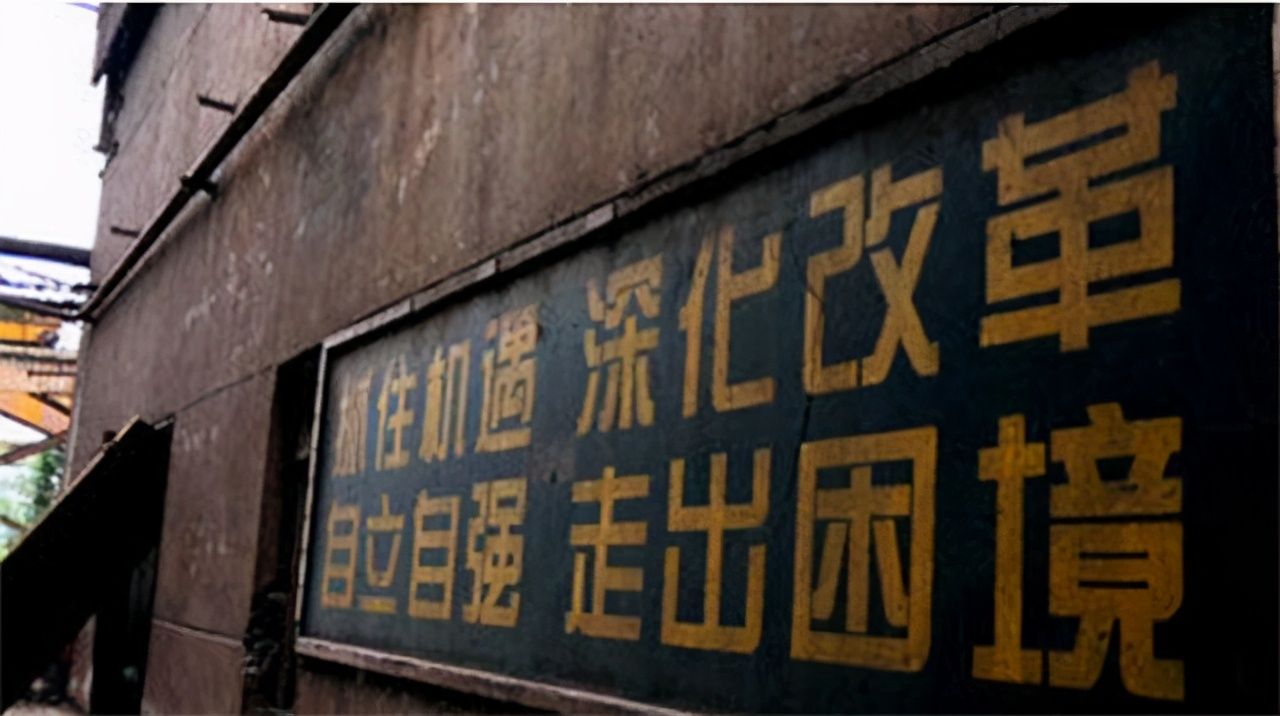
Another controversy in the reform is the "state advances and private retreat" after the Asian financial crisis in 1998. The so-called "state advances and private retreat" means that state-owned capital began to withdraw from competitive fields such as textiles, home appliances, and food, and transferred to And it has formed a dominant and monopoly position in the so-called strategic sectors such as resources, energy, finance, and heavy chemical industry. During this period, large-scale reorganization of state-owned assets took place, thus forming the advantages of oligopoly or multi-oligarch operation. Undoubtedly, these are exactly the "territories" of the rich and powerful, and have also formed a clear "watershed" in the market: private enterprises can no longer enter the industry run by oligarchs, even if the policy does not prohibit it, but it is like a glass door , The policy imposes stricter restrictions in this regard, making it impossible for private enterprises to cross this gap.
era of wealth
The era of Jiang Zemin was also an era of creating wealth, and many entrepreneurs began to rise and fall in this era.
For example, Chu Shijian has a legendary life.
Chu Shijian was born in 1928. He was a soldier when he was young. After 1949, he changed jobs and worked in government agencies. In the anti-rightist movement in 1957, he was labeled as a rightist in the following year due to the disadvantages of the anti-rightist movement. Sent to Hongguang Farm in the Yuanjiang River Valley for renovation.
In 1963, he was appointed as the deputy director of Manbeng Sugar Factory, which was the first high point in his life, and his talent in management was also displayed here.
Manbeng Sugar Factory is a company that has been losing money year after year, and the factory manager has been changed like a lantern, but the situation of the factory still cannot be changed. And one year after Chu Shijian became the deputy factory director, in the fiscal year 1963-1964, the sugar factory came out with explosive good news: the net profit of the year was 80,000 yuan. This has also realized the situation that the sugar factory turned losses into profits. The following year, the net profit reached 200,000 yuan, and the figure in the third year was 300,000 yuan. Since the sugar factory is profitable every year, the living welfare of the workers is getting better and better.
In 1966, the Cultural Revolution broke out, but because the production was stable and the life of the employees was more nourished than expected, Chu Shijian also obtained a certain degree of peace in the era of fierce struggles like the "Cultural Revolution". Many years later, Chu Shijian recalled the time at that time: " It's not how good the relationship between me and the rebels was, but that I was very far from them. I just did my job well-factory production ."
In 1979, Chu Shijian was transferred to Yuxi Cigarette Factory as the factory director, one of thousands of unknown small tobacco factories, with fixed assets of 10.6565 million yuan, and all production equipment were at the level of the 1930s and 1940s. In 1979, Chu Shijian was transferred here as the factory director. He paid close attention to quality and marketing, and created brands such as "Hongtashan" and "Ashima". He also purchased a large number of high-quality tobacco fields, the largest one covering 2,000 mu. By the mid-1980s, the Yuxi factory had become quite famous and could pay 500 million yuan in profits and taxes every year.
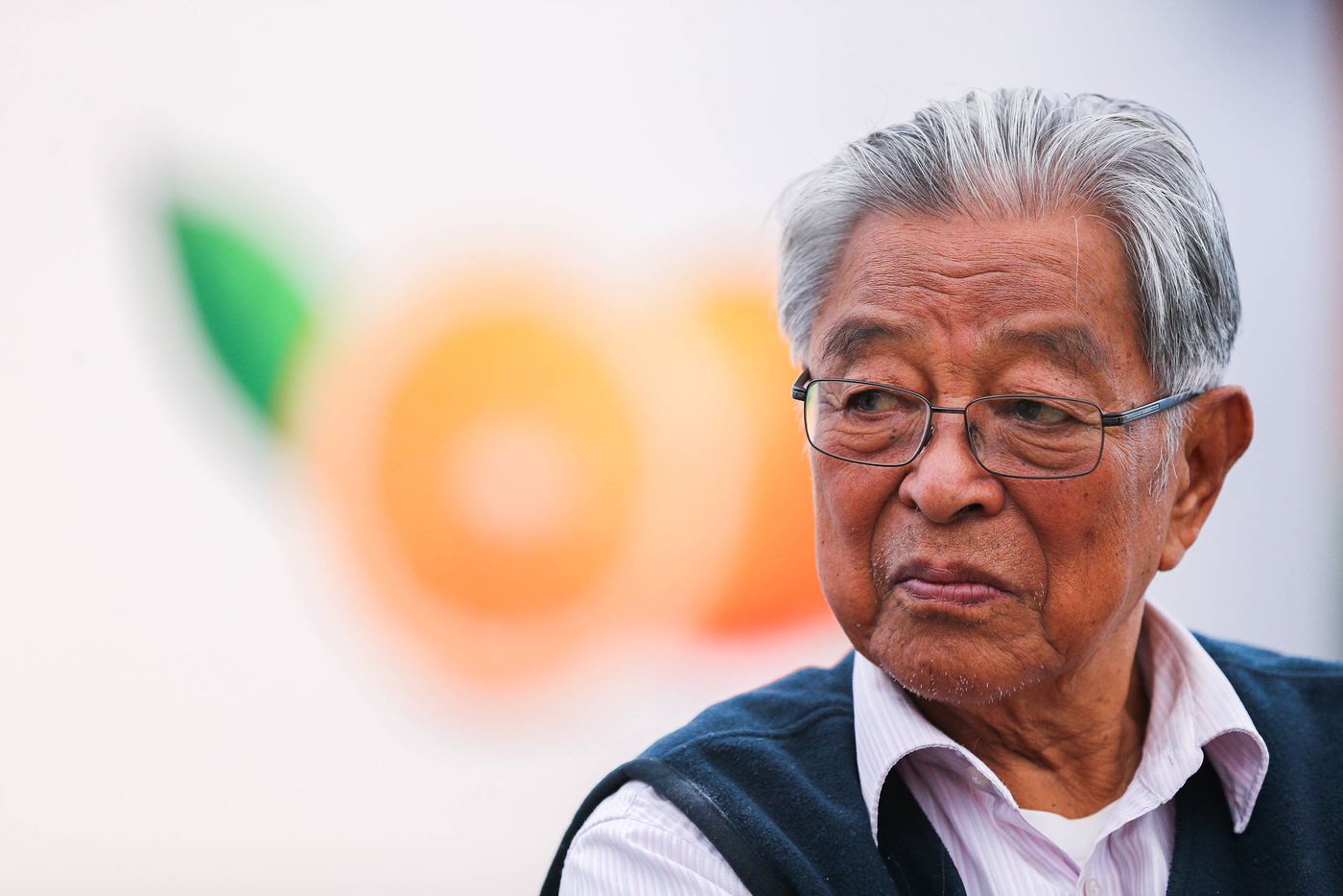
The rapid development of Yuxi factory started in 1988. Previously, all tobacco prices in China were planned and controlled. In July of this year, the state announced that it would liberalize the prices of 13 famous cigarettes and implement market regulation. Among the 13 kinds of famous cigarettes, 9 kinds are produced in Yunnan, and Chu Shijian's Yuxi Cigarette Factory won 4 kinds. This year, among the top 10 enterprises that paid the most profits and taxes in the country, Yunnan Yuxi Cigarette Factory ranked fifth, and its economic benefits jumped to the top of the national light industry. In order to break through the state's control over the output indicators of tobacco factories, he bypassed relevant policies and fully enlarged his own production capacity by acquiring small tobacco factories in Yunnan and other provinces. This is a "gray" reform channel, which makes the state's restrictions on the total amount of tobacco production useless. By the mid-1990s, Yuxi Cigarette Factory’s annual profits and taxes had reached more than 20 billion yuan, accounting for 60% of Yunnan’s fiscal revenue, which was equivalent to the total fiscal revenue of more than 400 agricultural counties. As the fifth largest tobacco company in the world, its name was also changed from Yuxi to Yunnan Hongta. This was the most glorious era of Hongta, and also the most glorious moment in Chu Shijian's life.
However, as there are peaks, there are valleys. At the end of 1996, the Letters and Calls Office of the Central Commission for Discipline Inspection received an anonymous report and launched an investigation into Chu Shijian. On December 28, Chu Shijian tried to leave the country through the Hekou Border Gate in Yunnan, but was intercepted by the border inspection station. In June of the following year, Chu Shijian was arrested on charges of corruption. In January 1999, Chu Shijian was sentenced to life imprisonment for "confession and meritorious service".
Around 2000, he was released on medical parole. He and his wife contracted 2,000 mu of mountain land to grow sweet oranges in Ailao Mountain, Yunnan. When he was released from prison, it was the early days of e-commerce. Ma Yun had just founded Alibaba in his apartment in Hangzhou with 10 employees. cultivated. In 2012, e-commerce has begun to grow. In November 2012, Chucheng also began to sell through e-commerce. Due to its high quality, it was often sold out, and the rush to buy it was comparable to Hongtashan cigarettes back then. Chu Shijian changed from the cigarette king to the "orange king" when he was 85 years old.
After becoming the "Orange King", Chu Shijian established Yunnan Chu's Fruit Industry Co., Ltd. in 2018, and the 90-year-old Chu Shijian became the chairman of the company. He died in Yuxi the following year at the age of 91.
The Advent of the Internet Age
1. When accessing the Internet
On September 14, 1987, an email was sent from Beijing: Over the Great Wall, we can go to every corner of the world. This is the first e-mail sent from China to an international scientific network via computer interconnection. This is the beginning of China's access to the Internet.
This year, the founder of Sina, Wang Zhidong, was still studying at Peking University, while the other founder, Jiang Fengnian, had just graduated from the University of Texas. Zhang Chaoyang has just gone to study in the United States; Li Yanhong is still a freshman at Peking University; Ding Lei, Ma Huateng and Zhang Yiming are all high school students. As for Ma Yun, he failed the rankings twice and is still studying at Hangzhou Foreign Language Institute.
There is only Liu Chuanzhi, who founded Lenovo's predecessor: Beijing New Technology Development Co., Ltd. three years ago; and in Shenzhen in the south, Ren Zhengfei also just founded Huawei.
These people are all figures who will dominate the IT industry in the future, but at this time, they are still in their infancy.
For a long time after the first access to the Internet, Chinese Internet users have always been scientific researchers. By 1994, 2,000 people were able to connect to the Internet, most of whom were still scholars. But the change came quickly. In April of that year, China’s Internet was connected to the U.S. Internet. In the following year, AsiaInfo, which was the first company in China to provide a commercial network, followed the rapid increase in the penetration rate of computers, becoming an unstoppable A new appliance in a rare home.
1994 is also considered the first year of the Internet in China.
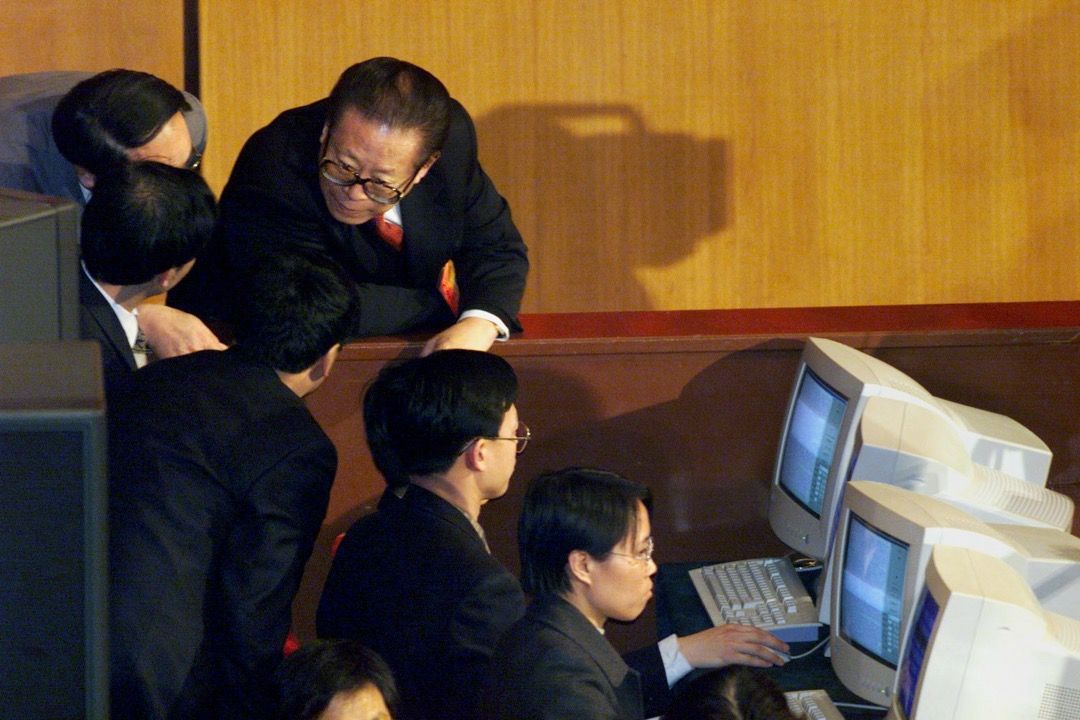
In the same year that AsiaInfo was established, Zhang Chaoyang, who returned from studying abroad, founded "Aitexin Information Technology Co., Ltd." with American venture capital, which was the predecessor of Sohu; then in 1998, Sohu was officially born. Also in 1997-1998, Netease and Sina were established one after another, thus the three major portals were ready. Still in 1998, Tencent, the future online social giant, was born. In the year when AsiaInfo was founded, Shuimu Tsinghua BBS was established in Tsinghua University. It is the official BBS of Tsinghua University and the earliest online forum in the history of China's Internet. In addition, there was the very popular Bihaiyinsha chat room at that time.

QQ, Bihaiyinsha chat rooms, portal websites, MSN, BBS, these new things have greatly changed people's lives. "Are you GG or MM?" "I met a dinosaur today." became a buzzword at that time, and "No one on the Internet knows you are a dog" also became a popular sentence at that time. There is also an online novel "The First Intimate Contact" by Taiwanese writer Cai Zhiheng (Ruffian Tsai), which was very popular for a while. Netizens call themselves new and new humans, their lives have been completely changed by the Internet, and the dream of a global village seems to be coming true because of the Internet. Under that kind of jubilation, everything brought by the new and new human beings is new, a new attitude towards life, a new world view, and a new language.

What has brought about changes is also the way of entertainment. There is a software called Lianzhong Games, which brings various chess and card games to the Internet. Playing chess and cards is not limited to a certain time, space and region.
There is also a Shanda Entertainment established in Shanghai, which has also brought large-scale games to the Internet. Shanda introduced a Korean game called Legend to China, triggering a revolution in the game industry. Compared with stand-alone games, the game has more social functions. In addition to chatting, you can also form a team to complete tasks, which makes the relationship between people more closely connected. Chen Tianqiao, the founder of Shanda Games, who had won the first pot of gold, was full of enthusiasm at that time, and wanted to make Shanda the Disney of China. Of course, Shanda did not become Disney, but an online game giant.
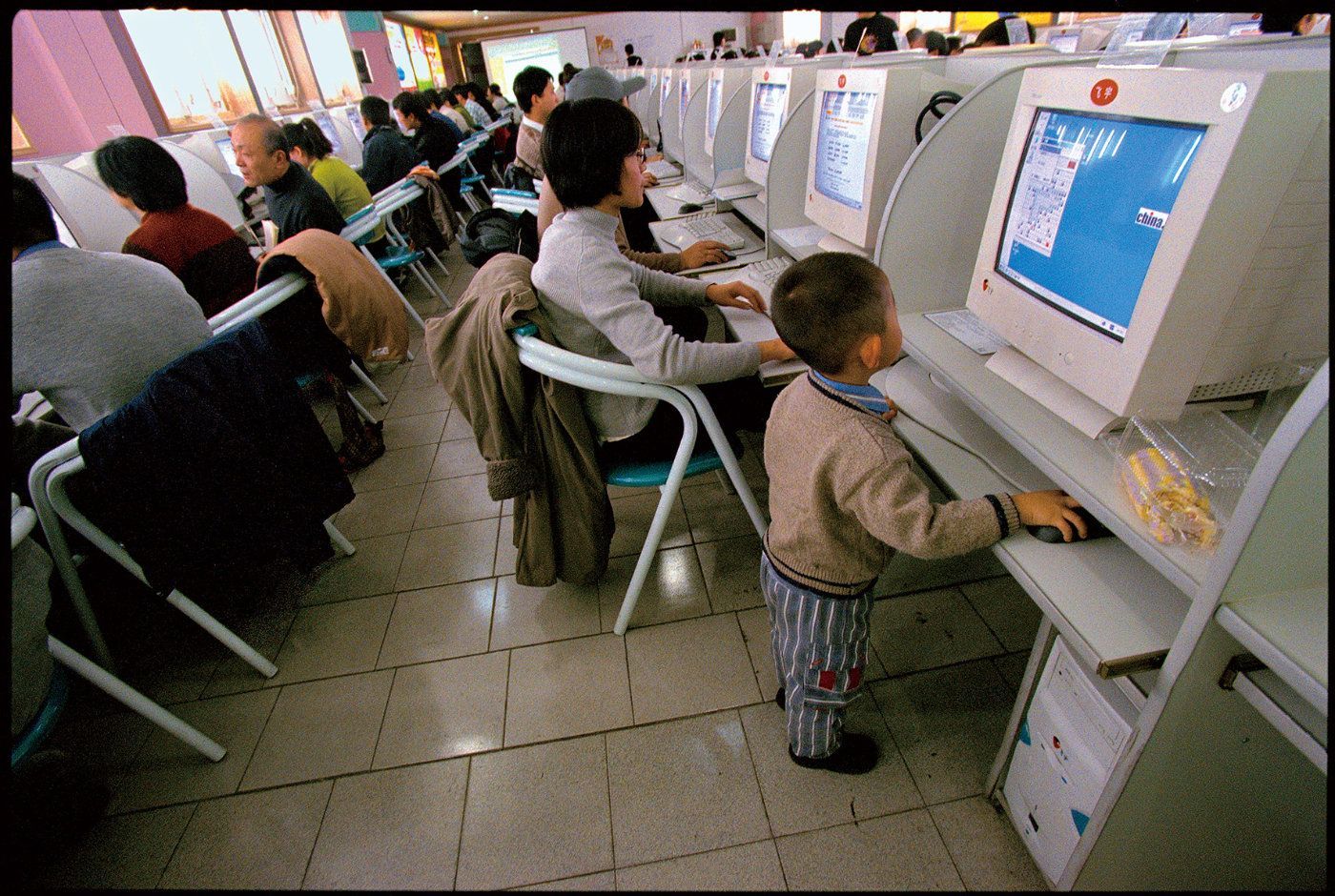
2. The far-reaching national network firewall
When China was connected to the Internet, Deng Xiaoping, who was in power at the time, probably did not think about the significant impact the Internet would have on the world. As mentioned earlier, before 1995, most of the Internet users in China were scientific researchers, until the first commercial operator AsiaInfo appeared in 1995. BBS, Internet chat rooms, instant messaging software such as QQ and MSN have changed the way people communicate. The introduction of Sina Blog and QQ Zone in the Web 2.0 era transformed personal expression into another form. The diversification of expression means the diversification of information, especially for well-known writers like Han Han, according to Yicai According to statistics in 2010, Han Han's personal blog had accumulated 346 million visits, and each of 253 articles received an average of 1.36 million hits. This is a number that is enough to scare those in power.
The Communist Party has always had the practice of controlling public opinion. Before the Internet, censors would censor books, newspapers, magazines, and movies imported into China. Now with social media, with portals, with the Internet that allows direct access to foreign countries, everything has become difficult to control. It also makes the Communist Party fearful. They are afraid that people will learn to think, and they are even more afraid that they will lose power because of this. Although they have already enacted laws, these laws are so vulnerable to the Internet, so surveillance is extended to the Internet.
Jiang Zemin believes that this Internet censorship and monitoring system is very necessary. He mentioned in an interview with The New York Times: Everything has a good and a bad side. The Internet allows people to communicate easily and share the progress of science and technology. The knowledge and information, but some unhealthy things hurt the good side. In 2001, Jiang also mentioned in his speech at the Central Committee of the Communist Party of China: the Internet has contributed a lot to my country's economic growth, but the development of information networks has also raised new problems, especially superstition, pornography, violence and other harmful information The spread of the virus may cause great harm to the physical and mental health of the people, especially young people. That is, from this time on, the power of the censors began to expand significantly.
However, the establishment of the National Firewall (hereinafter referred to as GFW) in terms of system was in 1996 the State Council Decree No. 195 signed by Li Peng. This administrative order mentioned that the state has absolute control over the Internet and its development. The following year, the Ministry of Public Security A series of regulations were promulgated to make these controls concrete. At the same time, the "National Public Security Informatization Project" code-named "Golden Shield Project" began to be implemented.
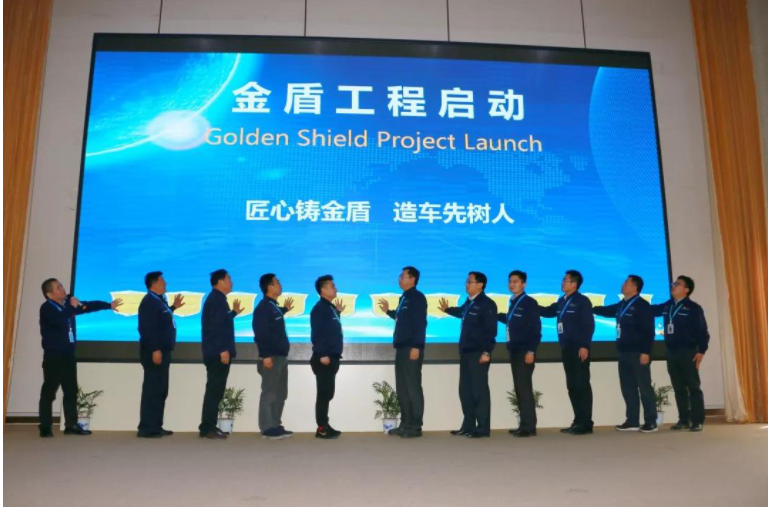
The Golden Shield project is comparable to something as majestic as the Three Gorges Dam; its intention is to transform China's Internet into the largest surveillance network in history - one with records of every Chinese person, an army of censors and cyber police databases, and tracking systems that track and control pieces of information transmitted throughout the network. The most prominent part is to set up a sensitive word filtering system to freeze and block social media accounts based on the trigger frequency of sensitive words. And with the development of the Internet, there are more and more sensitive words, but for ordinary users, they don't know whether they will trigger sensitive words, so some strange puns began to appear on the Internet, such as "government" is called zf; Xi Jinping is called "Baozi", Xinjiang is called XJ and so on.
In addition, under this system, there is also a group of online commentators dubbed the " Fifty Cent Party ". To achieve a "harmonious" network environment. Whenever there is discussion of an event that is unfavorable to the government, they will defend the government and even accuse those with different opinions of causing trouble in an official tone.
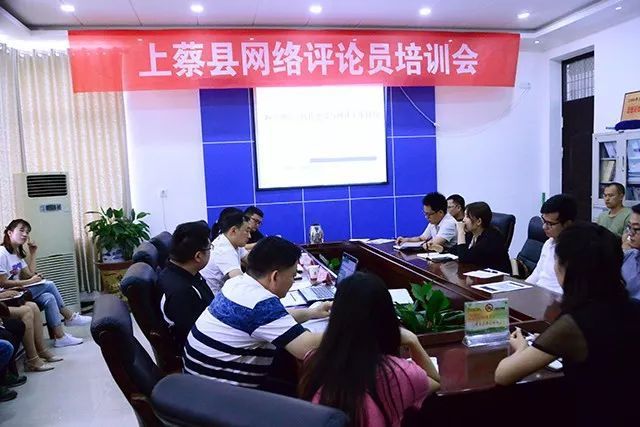
GFW exists in every corner of China's Internet. In addition to national-level routers and switches, major consumer-level operators (ISPs) also have GFWs. When a user tries to surf the Internet, the operator will block the list of banned URLs and content types. If the content is not banned, it will forward the request to an Internet access point (IAP), which is responsible for forwarding the traffic to China. Even servers around the world, the data packets are checked at this stage: search for keywords and possible labels; when the target server returns the data to the user, it will be checked again, and the browser can only open it after clearing all obstacles Web page.
The so-called wall is one foot high, and the road is one foot high. Since there is a wall, there is overcoming the wall, and this kind of offensive and defensive battle is still going on today. In the early days, it was possible to circumvent the wall by modifying the host file, but after being discovered by the wall, keyword filtering began, and once the keyword was triggered, the network would be disconnected directly. But this method of killing one thousand enemies and harming eight hundred is somewhat inhumane, so GFW began to directly cut off the links of foreign IPs, so that modifying the host file would not work. Thus, the famous VPN came into being.
The original purpose of VPN is not to bypass the wall, but to improve the security of data transmission, so it is necessary to have the privacy and anonymity of data transmission. It is precisely because of the anonymity of the VPN that it is possible for the VPN to bypass the wall. But GFW will also evolve, and the weakness of VPN will gradually appear, because its IP address is fixed, so as long as GFW blocks the IP address of VPN, then VPN will be invalid. At this time, a special software for overcoming the wall: ShadowSocks (referred to as SS) and its variant ShadowSocksR (SSR) turned out. For a long time, GFW was helpless with this technology. The main reason for this is that SS and SSR are open source, which makes the iteration speed of SS and SSR very fast, and even far exceeds the update speed of GFW for a period of time.
Well, since the problem cannot be solved technically, it must be solved institutionally. Soon, the police found the author of SS and asked him to delete the code on GitHub, and the author only gave in. But even so, the various derivatives of SS are still in rapid iteration. This is a game of cat and mouse. People who need to bypass the wall provide this kind of service.
The Before and After of Falun Gong
When it comes to Falun Gong, one has to mention its founder Li Hongzhi. The master's early life is unknown, according to the description in the book " Falungong and the future of China " : Li Hongzhi, formerly known as Li Lai, was born on July 27, 1952 in Gongzhuling City, Jilin Province. He is the eldest of three children in his family, and his parents divorced when he was young. In 1955, he moved to Changchun with his mother. When Li was in junior high school, the Cultural Revolution happened, so he had to interrupt his studies, so he had to work in a military horse farm. This was 1970. After leaving, he turned to be a trumpet player in the band affiliated to the Provincial Forestry Public Security Propaganda Department. In 1978, the troupe was disbanded, and he turned to work in the security department of Changchun Grain and Oil Company. During this time, he married and had a daughter.
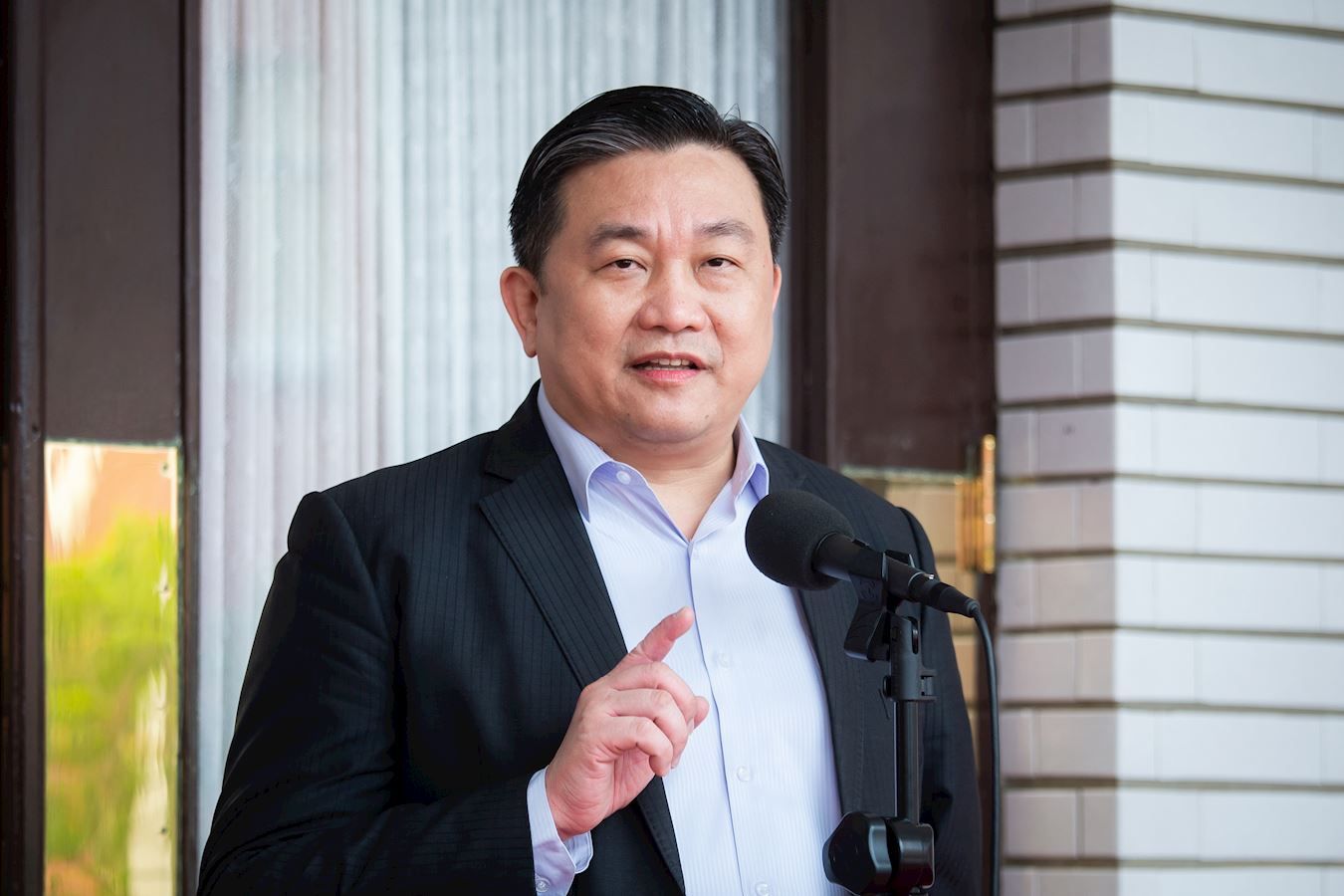
In the 1980s, there was a wave of qigong craze in China, and Li Hongzhi also participated in the practice. In 1992, he founded Falun Gong. For qigong, the government at that time supported it. In 1985, the China Qigong Scientific Research Association (hereinafter referred to as the Qigong Research Association) was established, with General Zhang Zhenhuan as the chairman, and Li Hongzhi's Falun Gong was a member of it, and received the sponsorship. Because of this, his Falun Gong has expanded rapidly in just two years. By 1995, Falun Gong had developed from a local qigong group to a national qigong organization, and the number of practitioners had exceeded tens of millions.
In 1994, General Zhang Zhenhuan passed away, and Falun Gong lost its support. So in 1995, Falun Gong ushered in a turning point. In order to strengthen the government's control over Falun Gong, the National Sports Commission, the Ministry of Public Health, and the Qigong Research Association visited Li Hongzhi and asked to jointly establish a Falun Gong Association, but Li Hongzhi refused. In the same year, the Qigong Research Association passed a new regulation: requiring all Qigong branches to establish a party Branch, Li Hongzhi refused again. By 1996, the relationship between Li Hongzhi and the Qigong Research Association continued to deteriorate, and he directly withdrew from the Qigong Research Association and began to operate independently. In 1997, Luo Gan, then secretary of the Political and Legal Committee, ordered the Ministry of Public Security to conduct an internal investigation of Falun Gong, but no substantive evidence was found; in 1998, Luo Gan again ordered the public security system to issue an order to investigate Falun Gong. American green card, choose to settle in the United States.
During this period, the opinions of high-level government officials have not yet been unified. For example, Beijing TV once produced a program criticizing Falun Gong, which was taken off the shelves a few days later, and then produced a program in favor of Falun Gong. But in April 1999, the top leaders were allowed to unify their thinking. At that time, He Zuoxiu, an academician of the Chinese Academy of Sciences, published an article "I Disapprove of Teenagers Practicing Qigong" in "Tianjin Science and Technology", so hundreds of Tianjin Falun Gong practitioners went to the magazine to petition the magazine and demanded that the article be withdrawn. As a result, 45 people were arrested; It was a bigger petition, so on April 25, 1999, thousands of people meditating and reading books appeared in front of Zhongnanhai Gate. This is the first time such a large-scale protest has taken place. In order to prevent the incident from escalating, the then Premier Zhu Rongji met with representatives of Falun Gong urgently, and agreed to properly handle the arrest of Falun Gong practitioners by the Tianjin Public Security Bureau, release the 40 arrested practitioners, and ensure that the government supports mass fitness activities and does not regard Falun Gong as an anti-violence movement. government organization.
During this demonstration, Falun Gong repeatedly emphasized that it is neither a religion nor an organization, and their rallies are also non-political. But it was this rally that shocked the high-level people: under their noses, such a huge force could be organized in an instant, and the control over the personnel was astonishing. This further unifies the high-level opinion: Falun Gong must be banned, so there is a mass arrest operation against Falun Gong that started in July.
Falun Gong was able to expand rapidly, and then declined rapidly. It was also related to the wave of layoffs caused by the reform of state-owned enterprises at that time. Since the wave of layoffs has caused a large number of unemployed people, it is a very unstable factor for the government. Religion can be used as a good placebo to maintain stability. However, as an atheist party, the Communist Party can't justify supporting religion with great fanfare, so qigong came into being as a marginal ball. From an economic point of view, it can be known that after the economy reached a peak in 1992, the growth rate began to slow down, and the wave of laid-off workers also began to appear in 1994, until 1999 when the laid-off population was absorbed. This time coincided with the development of Falun Gong. match.
The large-scale arrest of Falun Gong was obviously a stain on the high-level officials at the time, but from the perspective of the logic of the Chinese government, it was something that had to be done, because Falun Gong clearly challenged the ruling authority of the Chinese Communist Party. Never allowed. But is Falun Gong going out of business? No, Li Hongzhi went to the United States to settle down in 1998. After the mass arrest, some Falun Gong practitioners hid in China, and more went overseas to develop. This also gave birth to a group of human rights lawyers such as Gao Zhisheng and Wang Quanzhang. The subsequent 709 case was also a mass arrest of these lawyers. Of course, these are another story.
The once glorious national football team
In addition, I have to mention the national football team. Now talking about the national football team, it can be said that it is not worth mentioning. Now it is just during the World Cup. Looking at the current Asian teams, whether it is Japan, South Korea, Australia, or many West Asian teams, they are enough to compete with the traditional European teams. Japan even almost entered the penalty shootout. World Cup quarter-finals list. And what about the national football team? You can lose to Hong Kong, you can lose to Indonesia, you can lose to Malaysia, you can even lose to Vietnam, there is no team that the national football team dare not lose.
But in the Jiang era, the national football team has always aimed to enter the World Cup.
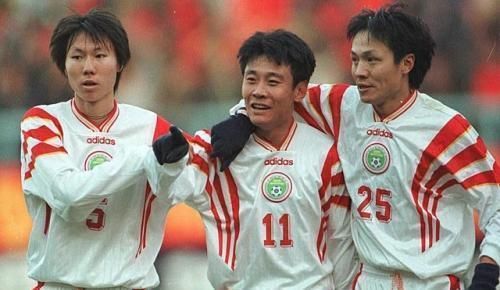
For the national football team at that time, it was reasonable to lose to Japan, but it was not happy to lose to South Korea. At that time, there was a popular word called "Koreaphobia", which meant that the national football team would lose every time they met South Korea. It can be seen that Chinese fans at that time did not buy China's loss to South Korea. Even if they lost to South Korea, they could still sit in the third place in Asia. Moreover, at that time, there were Jianlibao generation like Li Jinyu and Li Tie; there were also main players like Hao Haidong and Fan Zhiyi; before. I have been watching the national football team since 1997. From Qi Wusheng to Horton to Milu, I often sighed that the national football team could not make it to the World Cup, but it was also in 2001 that the national football team finally made it to the World Cup. It is a pity that the national football team lost all three games in the World Cup and failed to score a goal, which disappointed the Chinese people. The subsequent national football team took a sharp turn for the worse. The older generation of players retired one after another, but the new generation of players found it difficult to continue, and gradually became a third-rate team in Asia.
Sino-US Relations Amid Conflicts and Frictions
After the June 4 incident, Sino-US relations became tense for a time. The Bush administration announced five sanctions against China, and the relationship between China and the United States fell to the lowest ebb since the establishment of diplomatic relations. However, the development of Sino-Soviet relations has hindered the United States and the United States needs China's cooperation in resolving the Gulf crisis and realizing peace and equality in Cambodia on a series of major international and regional issues, so that the Bush administration began to communicate and engage with China and promote the improvement of bilateral relations .
In 1992, Democrat Bill Clinton was elected as the new U.S. president. After a series of frictions at the beginning of his tenure, Sino-U.S. relations tended to ease.
Throughout the Clinton period, there were constant frictions between China and the United States, such as the 1996 Taiwan Strait missile crisis, the 1999 bombing of the Chinese embassy in Yugoslavia, and the 2000 Sino-US plane collision in the South China Sea. But in general, the United States still hopes to give China more economic growth and most-favored-nation treatment through contact with China, and hopes that through China's economic growth, it will drive the rise of the middle class, so that China can re-enter the pace of political reform . And China also took this opportunity to complete its economic take-off.
From the current point of view, the US policy toward China at that time was obviously wrong, but at that time, the US still had such good wishes for China. In addition to giving China the most-favored-nation treatment for many years, it also allowed China to join the World Trade Organization. China's accession to the WTO, like the national football team's entry into the World Cup, became two major events in 2001.
In the past 20 years since China's accession to the WTO, many Chinese companies such as JD.com, Alibaba, Two Barrels of Oil, Pinduoduo, Sohu, and Baidu have gone public in the US one by one. Going abroad is no longer impossible in the past 20 years. Individuals can also buy cars, and various cars with foreign car brand logos can run on the road. The production of these cars is either a joint venture company or a wholly foreign-owned company. These are the conveniences that China has brought to the Chinese after China's accession to the WTO.
But successes and failures are Xiao He. When China entered the WTO, it made many promises. These commitments include further opening up the market, including the telecommunications industry, the financial industry, and the tourism industry, removing non-tariff barriers, implementing tariff reduction policies, and canceling Tariffs on information technology products. Three years after China’s accession to the WTO, all domestic enterprises will obtain trade rights. Three years after China’s accession to the WTO, there will be no franchise restrictions. Some of these commitments have been fulfilled, but more commitments It has not yet been fulfilled, which is one of the reasons for the current tense Sino-US relations.
There were also some rifts in Sino-US relations during this period. For example, the bombing of the Chinese embassy in Yugoslavia in 1999 and the plane collision in the South China Sea caused rifts between China and the United States. But at that time, Jiang Zemin carried out Deng Xiaoping’s will :
1. Don't be the leader of a small country, it will deplete the treasury.
2. Don't conflict with the United States, it will be bad for us.
This was Deng Xiaoping's "hide your strengths and bide your time" policy at that time. Compared with the current wolf-war diplomacy, it is a matter of opinion.
The Golden Age of Journalism Oversight
Of course, in the Jiang Zemin era, merit and demerit go hand in hand. During his and the later Hu Jintao era, the society was relatively open. During his tenure, media such as "Southern Weekend", "Southern Metropolis Daily", and "21st Century Business Herald" appeared. It is now collectively called the "Southern Department". At that time, it was a series of media calling for political reform; there were also "Oriental Time and Space" and "Focus Interview" on TV. This was also a booming era.
In my own memory, the "Focus Interview" at that time received a high degree of attention. Once such a report appeared, the local officials would always deal with it afterwards, and then the program team would conduct a return visit to see whether the corresponding event got resolved. There is one more detail that can be mentioned. According to the former CCTV reporter Wang Zhian mentioned in his YouTube program , "Focus Interview" once talked about a town mayor in Yunnan Province who forced a restaurant owner to death. The secretary of the provincial party committee was called by Jiang Zemin and asked to come to Beijing immediately. He didn't know that he was being scolded until he arrived in Beijing. This shows how loose the space for public opinion was at that time. It is precisely because of this that Weibo appeared in 2010. At that time, Weibo could really promote social progress, and it was not a place where nationalist arguments are rampant now.
The Era of Jiang Zemin
The era of Jiang Zemin was an era of wealth creation. Wang Jianlin of Wanda, Chu Shijian who started his business for the third time, real estate tycoon Wang Shi, Mou Zhong who traded canned food for airplanes, and Shi Yuzhu who brought innovation to the field of online games through brainwashing advertisements. There are also many Internet giants, as well as many private entrepreneurs, who all began to rise at this time.
The era of Jiang Zemin was also the era of the barbaric growth of the Internet industry. China's access to the Internet has created many Internet giants such as Tencent, Sina, and Netease, and at the same time it has also changed our daily lives.
The era of Jiang Zemin was also an era of rampant corruption. Before him in the 1980s, some red aristocrats made their fortunes through the dual price system, which was also the main reason for the formation of the June Fourth Movement. In the early days of the Jiang Zemin era, the dual-track price system was still prevalent, and more people relied on this system to make a fortune. In the subsequent reform of state-owned enterprises, the rich and powerful enjoyed the fruits of the market-oriented reform of state-owned enterprises exclusively through mergers and acquisitions of state-owned enterprises, and market-oriented reforms. Corruption is rampant. The establishment of GFW and the suppression of Falun Gong are also his stains.
Jiang Zemin's era was an era of openness, public opinion supervision, and the fourth power were affirmed in his era, thus giving birth to a large number of media that lead the trend of the times. It also laid the foundation for the prosperity of the media and public opinion in the following ten years.
In Jiang Zemin's era, joining the WTO was something that had to be mentioned. It was precisely because of joining the WTO that it set the tone for the ten years of economic prosperity in the Hu Jintao era.
Looking back at the past, compared with the little pinks that can be seen everywhere, compared with the radical nationalist speeches that can be seen everywhere, compared with the economic stagnation and dynamic clearing in the past three years, compared with the current era where even a like can be a crime, that era is obviously full of vitality and hope. .
Like my work?
Don't forget to support or like, so I know you are with me..
Comment…